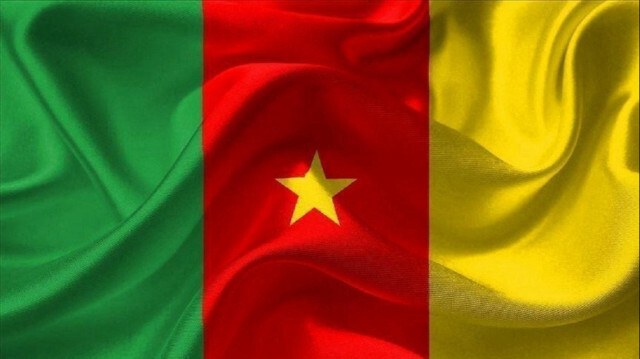
For several years, Cameroon has been mired in an unresolved separatist crisis that started in the northwest and southwest -- two regions dominated by Anglophone minorities.
With the 2021 edition of the African Cup of Nations (AFCON) opening Jan. 9 in Cameroon, among the matches that will be held, two cities in the southwest, Limbe and Buea, are prepared to host eight games in a worrying climate for many observers despite the security arsenal that has been deployed.
The crisis, which the Norwegian Refugee Council (NRC) considered "the most neglected on the planet," is for the International Crisis Group (ICG) "the main security problem" in this Central African country.
Cameroon, which continues to suffer from a political crisis and terror attacks in the north, is subjected to the separatist issue that erupted in late 2016.
The English-speaking minority in this bilingual country feels marginalized and has expressed its need for federalism or separatism through multiple demonstrations.
The conflict has escalated, making the English-speaking area a theatre of violence’s that has resulted in 3,000 deaths and the displacement of more than 730,000 civilians, according to Human Rights Watch (HRW).
A national dialogue that began Sept. 30, 2019, shortly after the arrests of separatist leaders, did not have the presence of all stakeholders, let alone the expected appeasement.
Authorities have repeatedly called on separatists to lay down their arms by promising “full law force” against opponents of the request.
But the crisis continues.
If the government and separatists could have ended the conflict, they would have, according to Arrey Elvis Ntui, a senior Cameroonian expert with the ICG.
"The government and the separatists are pursuing a military strategy, in part because of the government's reluctance to engage in inclusive talks with these Anglophone groups. What is sorely lacking is a mediation effort that can reduce the mistrust between the parties and bring them to the negotiating table," he told Anadolu Agency.
The complexity of the crisis stems "in part from the sides fighting each other," he said, with plans for war while "the international community is making little effort to get them to discuss a political solution."
But “the major problem is the lack of political will to hold talks, despite prolonged conflict and suffering,” he said.
- Broken social structure, difficult psychological recovery
Cameroonian socio-economist Simon Crepin Bikele believes the crisis will continue as long as separatists threaten the nation’s integrity and they do not lay down their arms.
"It will be difficult to convince the state, which is the guarantor of the integrity of our territory, to get the military out of the area until peace returns," he told Anadolu Agency. "The only alternative is for the separatists to capitulate and come to terms with their situation.”
The demobilization, disarmament and reintegration process undertaken by the government is a glimmer of hope in this sense, despite the timid adhesion of former separatist fighters, said Bikele.
He lamented that development is on hold because "it is impossible in a climate of insecurity and without peace.”
For Bikele, the negative image of Cameroon due to this conflict does not make it an attractive economic destination.
"On the social level, families are disorganized. People have been separated from their families for some time, others do not know where their loved ones are. Lives are taken away from one day to the next without the families concerned knowing it. People witness atrocious scenes of violence worthy of countries in civil war. The education of young people is on hold. This will lead to a difficult psychological recovery," he said.
Bikele believes that "this war has restructured the social structure" and will leave "indelible marks that will perpetuate resentment and all sorts of trauma among the population.”
Arrey Ntui said the population is frustrated by the increasing number of civilian casualties and the lack of accountability for crimes.
"Women are particularly affected. Both sides are ramping up their war plans while the international community is making little effort to get them to discuss a political solution," he said.
"It will take a long time to heal all these wounds. But the way things are now, it's hard to be sure," added Bikele.













